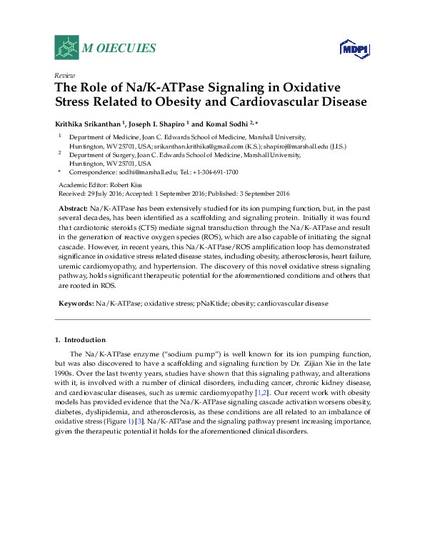
Article
The Role of Na/K-ATPase Signaling in Oxidative Stress Related to Obesity and Cardiovascular Disease
Biochemistry and Microbiology
Document Type
Article
Publication Date
9-3-2016
Disciplines
Abstract
Na/K-ATPase has been extensively studied for its ion pumping function, but, in the past several decades, has been identified as a scaffolding and signaling protein. Initially it was found that cardiotonic steroids (CTS) mediate signal transduction through the Na/K-ATPase and result in the generation of reactive oxygen species (ROS), which are also capable of initiating the signal cascade. However, in recent years, this Na/K-ATPase/ROS amplification loop has demonstrated significance in oxidative stress related disease states, including obesity, atherosclerosis, heart failure, uremic cardiomyopathy, and hypertension. The discovery of this novel oxidative stress signaling pathway, holds significant therapeutic
Citation Information
Srikanthan K, Shapiro JI, Sodhi K. The role of Na/K-ATPase signaling in oxidative stress related to obesity and cardiovascular disease. Molecules 2016;21(9):1172

The copy of record is available from the publisher at https://doi.org/10.3390/molecules21091172. Copyright © 2016 by the authors; licensee MDPI, Basel, Switzerland. This article is an open access article distributed under the terms and conditions of the Creative Commons Attribution (CC-BY) license (http://creativecommons.org/licenses/by/4.0/).